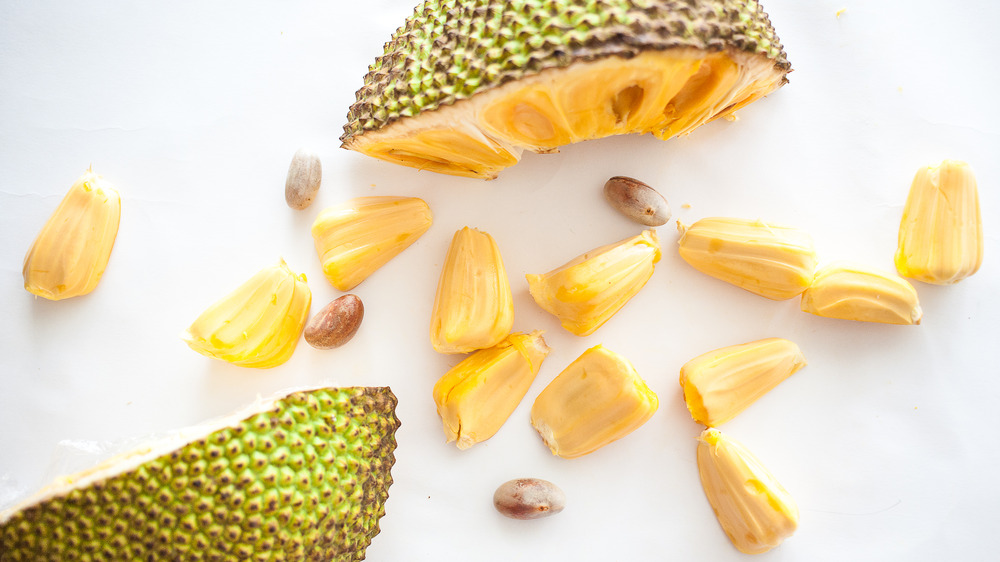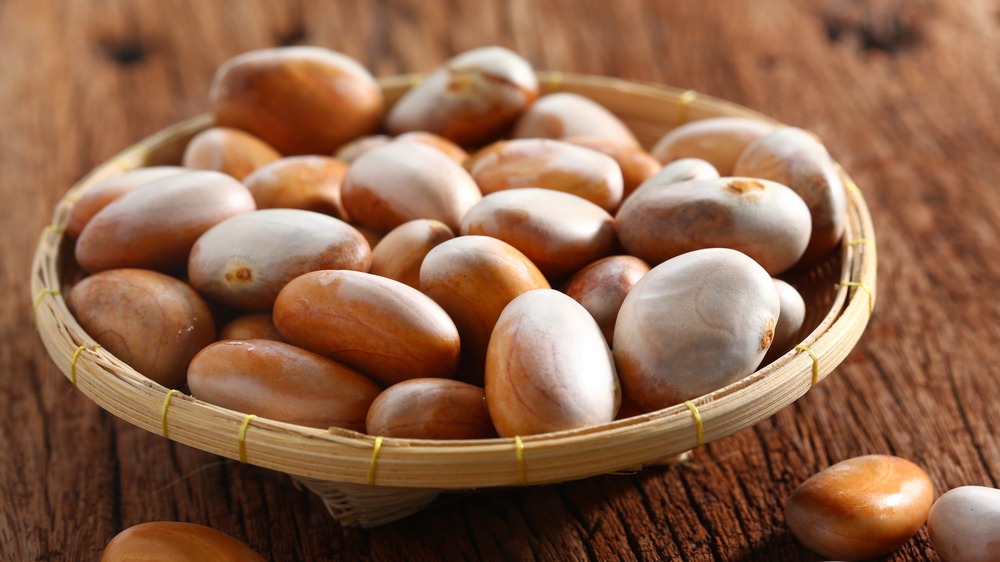The Myth You Shouldn't Believe About Jackfruit
Jackfruit is an obscure-looking oblong and prickly fruit native to tropical regions of Asia such as Indonesia, the Philippines, and Vietnam, known not only for its size as the largest fruit to grow on trees but also for its unique interior. Referred to as a "miracle crop" by some experts for its versatility, as Business Insider explains, ripe jackfruit flesh can be eaten raw as a sweet treat, while young green jackfruit can be used as a mild-tasting meat alternative. Its flesh is pale yellow in color and naturally sectioned into pods or bulbs, each housing a large seed connecting the pods to the jackfruit's core. According to Livestrong, a single jackfruit can contain 100-500 seeds, which are believed by some to be toxic.
Contrary to popular belief, jackfruit seeds are not toxic. The brown bell-shaped seeds are both chock-full of nutrients like protein, antioxidants, and B vitamins, and perfectly fine for most people to consume once they have been cooked. However, jackfruit seeds do contain a detrimental concentration of anti-nutrients that can cause digestion issues as well as increased bleeding for some, as Healthline explains, so it is important to always cook the seeds before consuming them.
Cooked seeds are both safe to eat and bursting with nutrition
According to Livestrong, Jackfruit seeds contain higher concentrations of certain nutrients than the fruit's flesh itself. A single jackfruit seed is made up of about 93 percent starch, a type of carbohydrate, and 100 grams of seeds deliver around 7 grams of protein, whereas 100 grams of jackfruit flesh contains just 1.7 grams of protein. Aside from their high starch content, jackfruit seeds are rich in antioxidants and two energy-boosting B vitamins: thiamine and riboflavin (via Healthline). High in fiber and resistant starch, jackfruit seeds can also curb hunger, reduce blood sugar levels, and improve digestion.
While jackfruit seeds aren't toxic, they do contain high levels of tannins and trypsin inhibitors, anti-nutrients that can significantly affect the body's nutrient-absorption and digestion processes when the seeds are eaten raw, as Healthline explains. Tannins can lower the body's ability to absorb minerals such as zinc and iron. Trypsin inhibitors are a form of protein that you may also encounter in papaya seeds and soybeans. They can hinder the body's ability to digest protein and ultimately impede the body's efficiency in digesting food. Applying sufficient heat to the seeds, however, neutralizes both anti-nutrients to levels that are safe for consumption. Simply boil them for 20-30 minutes and drain once tender, or bake in a 400-degree F oven for 20 minutes or until fully toasted.

